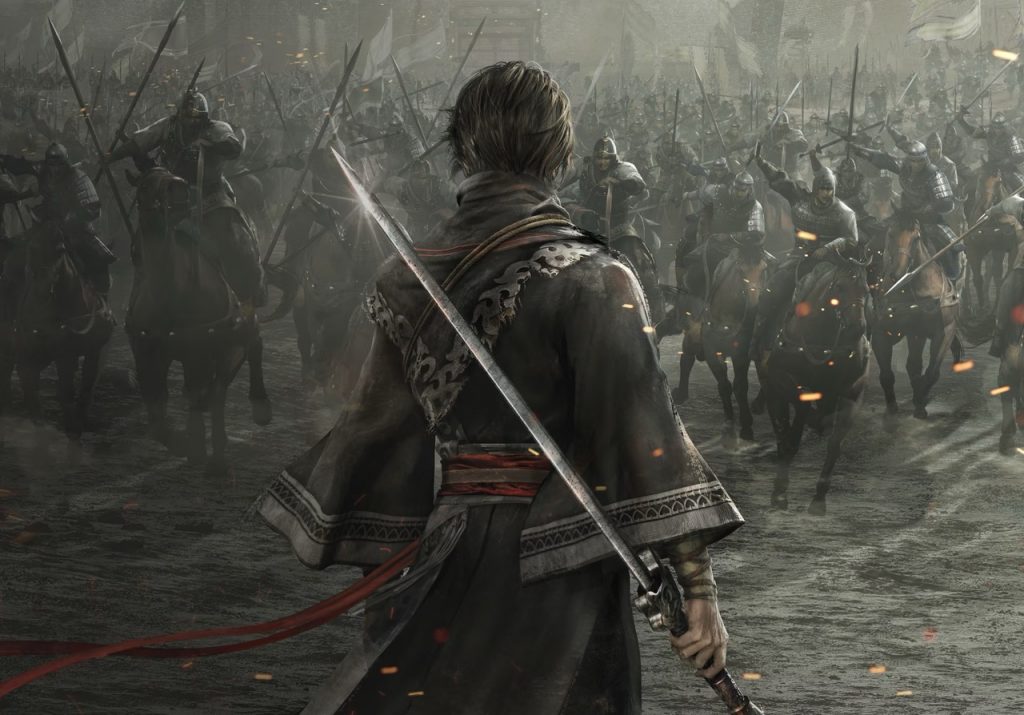The Dynasty Warriors series has never been subtle. For years it has been about mowing down armies the way most games let you mow the lawn, and Origins doesn’t try to dress that up. What it does do is attempt to strip the series back to something cleaner and faster, a reminder of why these games became such a guilty pleasure in the first place.
That first place for this review was when I first played Dynasty Warriors 2 at a friend’s house – and I’ve owned every mainstream entry since, for better or worse. As such, I feel uniquely able to take on this review…of a game that has remained about the same for the last two decades.
There’s no point pretending it’s about precision combat. This is a power fantasy in its most straightforward form – one hero against thousands, cutting through waves of soldiers with the sort of ease that borders on ridiculous. But Origins knows what it is. It isn’t embarrassed about the absurdity, and that honesty makes it far more enjoyable than you might expect. After Dynasty Warriors 9 went for a sort of open world feel and failed, Origins has decided to keep an overworld map for you to jog about and track main entries, grindy side quests and chat with characters.
Your protagonist, for the first time ever in the series, is a silent hero whom you name – everyone you come across seems to love you to a memeable degree – and the lead designed has had to answer some hilarious questions about how…desirable everyone finds you.
Combat has always been the make-or-break for this series, and here it feels tighter. Attacks have more weight, and while you’re still chaining together outlandish combos that send enemies flying like ragdolls, there’s a bit more responsiveness than in past outings. It’s still chaotic, but you feel more in control of the chaos, which makes those hundred-hit combos more satisfying.
The presentation helps. The scale of battles is impressive, with fields full of enemy soldiers charging, scattering, and regrouping. It’s pure spectacle, and even if the AI isn’t particularly clever, there’s something thrilling about wading through it all and watching the numbers rack up. The game isn’t trying to simulate historical combat – it’s trying to make you feel like the hero of a myth, and on that front it succeeds.
Where Origins makes its smartest move is in pacing. Previous games in the series have sometimes been guilty of bloating their campaigns with endless repetition. Here, the structure is leaner. Battles flow into each other more naturally, with a better balance between large-scale set pieces and smaller skirmishes. The story doesn’t reinvent the wheel, it’s still the Three Kingdoms saga, retold with all the melodrama you’d expect, but it’s presented in a way that feels easier to follow without pages of exposition slowing things down. Again the side quests can add some real grind. But you can pace through three stories without really touching the side material if you’d rather. But you’ll miss the exposition and character development from all the heroes of Wei, Wu and Shu, which will hopefully play into a second entry as this game remains as long as the predecessors but only telling half a story!
Visually, it’s a step up. Character models are sharp, the battlefields are varied, and while the sheer number of enemies on screen means some corners are cut in detail, the overall impression is striking. It has that glossy, larger-than-life aesthetic that suits the series, and it runs smoothly even when the screen is flooded with enemies.
Of course, the series’ quirks are still here. Enemy variety isn’t huge, and once you’ve carved through a few hundred soldiers, the spectacle can wear a little thin. The repetition remains part of the experience, and while Origins does a better job of mixing things up, it’s still at its core a game about pressing buttons until an army falls over. Whether that appeals or not depends entirely on how much joy you find in repetition. Hope you enjoy button mashing!
There are flashes of ambition outside of combat too. The progression system gives you reasons to experiment with different playstyles, and the sense of building a warrior’s legacy across the campaign is stronger this time around. It adds a layer of depth without weighing things down in menus.
What’s clear is that Origins is trying to be an entry point as much as a continuation. It feels like a game designed to win back lapsed fans while also giving newcomers a way in. It doesn’t bury you in systems, and it doesn’t overwhelm with choice. It simply says: here’s a battlefield, here’s your weapon, go and make some history.
It won’t convert the sceptics. If you’ve always dismissed Dynasty Warriors as shallow, this won’t change your mind. But for those who enjoy the catharsis of carving through impossible odds with a grin on your face, Origins is a reminder of why this series endures. It’s big, brash, and gloriously excessive.
Author: Tom, Cardiff Store







